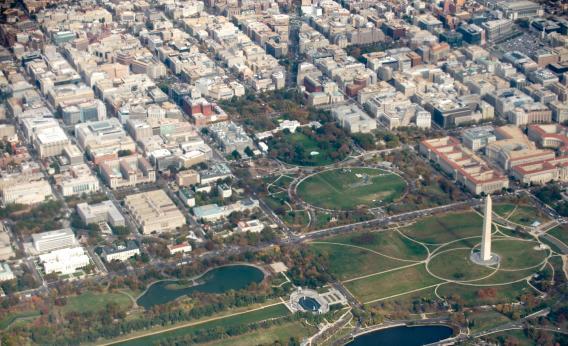Jim Tankersley recently wrote what is I think the best of a series of articles I’ve read in various outlets wondering if a turn toward fiscal austerity will crush the regional economy in the Washington, D.C., metro area.
I think we’re going to be fine. One reason is the empirical record. Declining local federal outlays was a concern throughout 2011 and 2012, and while some people and firms have certainly felt the pinch, the D.C. area has continued to grow and prosper for the past two years. Here’s my chart of nominal federal spending minus Social Security and Medicare spending—that’s a rough and ready effort to show the trend in spending on the sort of things where the money is likely to end up sloshing somewhere near the capital rather than getting mailed out to Real America:
As you can see, this shot up in early 2009 (stimulus) and then continued on a slow upward trajectory until the GOP took over the House, and since then it’s been trending downward.
I think the D.C. regional economy will be robust against further spending reductions in 2013 and 2014 for the same reason that it stayed robust despite the 2011 and 2012 cuts. That’s because the D.C. area—unlike America as a whole—is genuinely supply-constrained in terms of its output. The unemployment rate is only 5.2 percent, and housing costs here are already very high. The D.C. region has the second-longest average commute in America from the era of responding to housing supply constraints with further sprawl. Office rents in the core central business district are sky-high.
As you know, in my dream world we would change the rules around skyscraping and zoning and alleviate a lot of these supply constraints. But in the actual world, the D.C. area has become a place where if you wanted to launch or expand a business, you could easily find yourself facing difficulty recruiting qualified staff or renting adequate space. Under the circumstances, government consumption probably does crowd out private investment to a meaningful extent, and as spending declines, resources will be reallocated into other spheres.
Long story short, I remain bullish on the D.C. area. Having attracted a critical mass of highly educated residents, we’re prepared to remain one of the most prosperous regions in the country regardless of what happens to federal spending.
